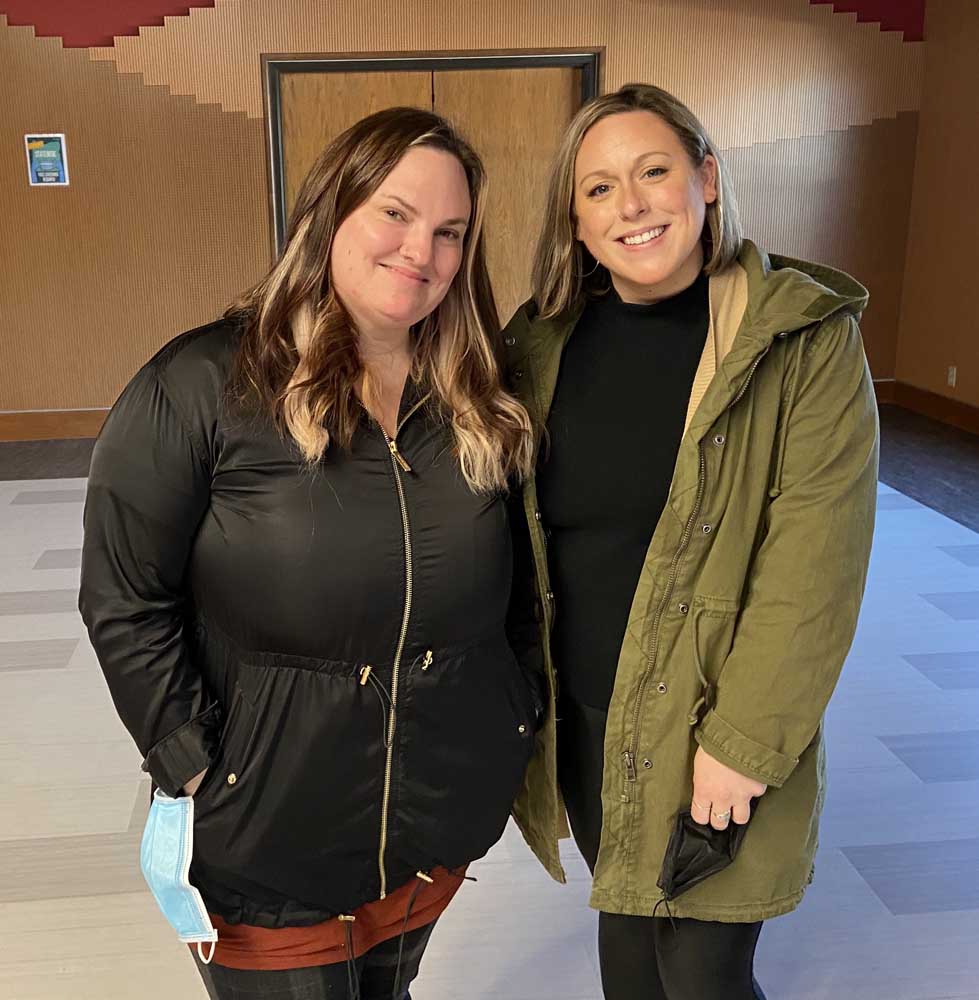Narcan availability essential, health department says
Published 4:15 pm Friday, February 25, 2022

- Jenna King and Kathryn Crombie of the harm reduction program at the Clatsop County Public Health Department.
Jenna King and Kathryn Crombie, of the Clatsop County Public Health Department’s harm reduction program, came to Seaside last week to ask business owners to take a role in recognizing and responding to drug overdoses.
Fatal overdoses can be prevented with the help of naloxone, an opioid antidote.
“We believe everyone should have naloxone on them or nearby — not just people who use drugs and their families. People can think of it as something that is part of your first-aid kit, like an EpiPen (for allergic reactions),” Crombie told the Seaside Chamber of Commerce at an event last Wednesday morning.
The harm reduction program trains people in the community to recognize symptoms of overdoses and administer naloxone while additional medical help can arrive.
When bystanders are trained and administer naloxone, survival rates increase substantially, King said.
The caution comes as social services advocates and law enforcement see an increase in the use of synthetic opioids like fentanyl, which is significantly stronger than morphine and heroin and can be blended with street drugs.
“A lot of times the person taking it doesn’t know that there’s something else. So that is leading to a lot of overdoses, as well,” King said. “Using prescription opioids with other medications or substances like alcohol or benzodiazepines can make you more at risk for overdose. It’s everywhere.”
Anyone can be at risk for overdosing. “It isn’t just someone that we see in our syringe exchange weekly,” she said. “It can be family, friends, co-workers or patrons.”
Narcan, designed to deliver naloxone nasally during an overdose, is provided at needle exchanges and to community organizations, including emergency responders and businesses.
People exiting jail are also provided Narcan in the belief that they’re at high risk for overdoses, King said.
“We also provide naloxone at the health department and people with Oregon Health Plan can get it for free from their local pharmacy,” she said.
Brian Owen, the CEO of the chamber, said he is moving forward with connecting hotel staff and others to the program and offering training at designated locations.
“It’s going to take some time, it’s going to take some conversation,” he said. “We’re educating and getting this resource into the hands of our hotels, restaurants, retailers.
“We have a better opportunity to save that first five minutes before our medical first responders and that’s what this is really geared toward: It’s to get the right people on the scene at that time. And for you then to step back.”





